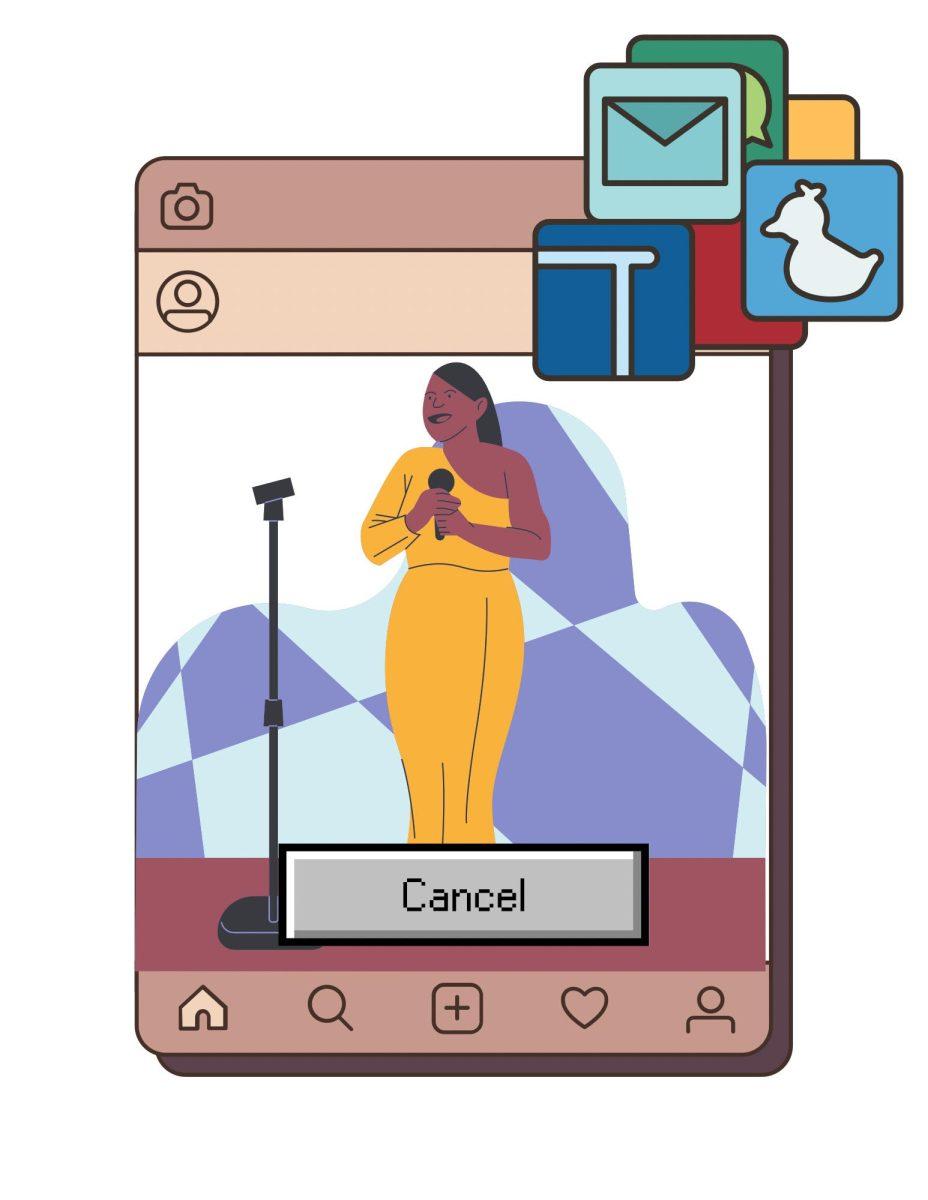Cancel culture is defined by Merriam-Webster as “the practice or tendency of engaging in mass canceling as a way of expressing disapproval and exerting social pressure.” In layman’s terms, it’s when a social elite or celebrity figure conducts an act that in today’s society would not be accepted at all — to the point where people would attack, belittle and make fun of that individual on social media platforms like TikTok, Instagram and Twitter.
Cancel culture made its mark on social media at the beginning of 2018 when people began to expose the behind-the-scenes behavior of certain beloved YouTubers such as Shane Dawson, Jeffery Star and James Charles.
Now, this piece is not about justifying criminal or illicit actions by celebrities. However, in today’s society, cancel culture has disconnected from its roots of holding people accountable and finding justice for those affected. Instead, it’s become about inflicting harm to one’s reputation with a false narrative and constant beratement on social media.
Oftentimes, this overreach of cancel culture is from the fanbase of a celebrity figure within the entertainment industry. Fandoms are collections of individuals who devote their lives, money or undying support to a celebrity. So, in the event that a celebrity figure is being attacked or being put under a false narrative, their fan bases — the wolves — are sent out to do more damage.
A great example of this would be the recent feud between Hailey Bieber and Selena Gomez. As we all know, Bieber and Gomez shared a love interest, Justin Bieber (Hailey’s current spouse). Long before they tied the knot, Gomez and Justin Bieber were in a prolonged on- again off-again relationship from 2008 to 2018. Justin Bieber and Gomez’s relationship had a lot of following, so when fans got news of the Biebers’ engagement, this started an ongoing feud between the two women from 2018 to 2022.
During this time, fans in both Justin Bieber and Gomez’s followings started to create false narratives of Hailey Bieber that depict her as the “mean girl” among her other friends, Kendall Jenner and Kylie Jenner. Fans would post harsh comments on her Instagram, send death threats through her private messaging and even create narratives of Hailey being a crazed fan who ”stalked” Bieber to later become his wife.
Justin Bieber would chime in to call on fans to stop all the harmful messages to his wife, but felt that this caused the issue to progress into something worse.
As social media users saw the trending topic of canceling Hailey Bieber, TikTok influencers began to comment, including famous YouTuber Jeffery Star, who posted a product review on Hailey Bieber’s recent release of her skincare brand Rhode. In this video, he was seen dumping the products into the trash and stating “We don’t support mean girls!” More and more influencers started to voice their side with Team Selena, even going so far as to say that they would publicly harm Hailey if they were in Selena’s position.
Personally, I know that things have gotten to a point where the situation has escalated to somewhere it shouldn’t have gotten to in the first place.
Last month, Gomez went onto Instagram to demand for all of this to stop and she quotes, “This isn’t what I stand for.” Gomez said “No one should have to experience hate or bullying.” Even after both women went ahead to even follow each other, this did not stop fans from their ongoing banter against Hailey.
This is a prime example of the dark side of cancel culture, and how far social media users are willing to go to publicly humiliate another person for the self-constructed delusion of love and support of those they idolized.
Growing up, social media was a place where people could come to express themselves and connect with others based on their interests, but right now social media has become a place where people suffer from distress and fear of people coming to attack them for any opinion they choose to express. We, as a society, need to realize that every action causes a reaction – because when you finally open your eyes to see the repercussions of that one tweet or picture/video the damage is already done.
So the next time you want to join the recent hate trend, sit and think about whether saying or doing this hateful thing is really worth putting another individual down – or, if the roles were switched, would you want to see someone writing such a negative thing about you, and how would you truly feel about it?
For comments/questions about this story, email [email protected] or tweet @TheWhitOnline

























































































































































!["Working with [Dr. Lynch] is always a learning experience for me. She is a treasure,” said Thomas. - Staff Writer / Kacie Scibilia](https://thewhitonline.com/wp-content/uploads/2025/04/choir-1-1200x694.jpg)










































